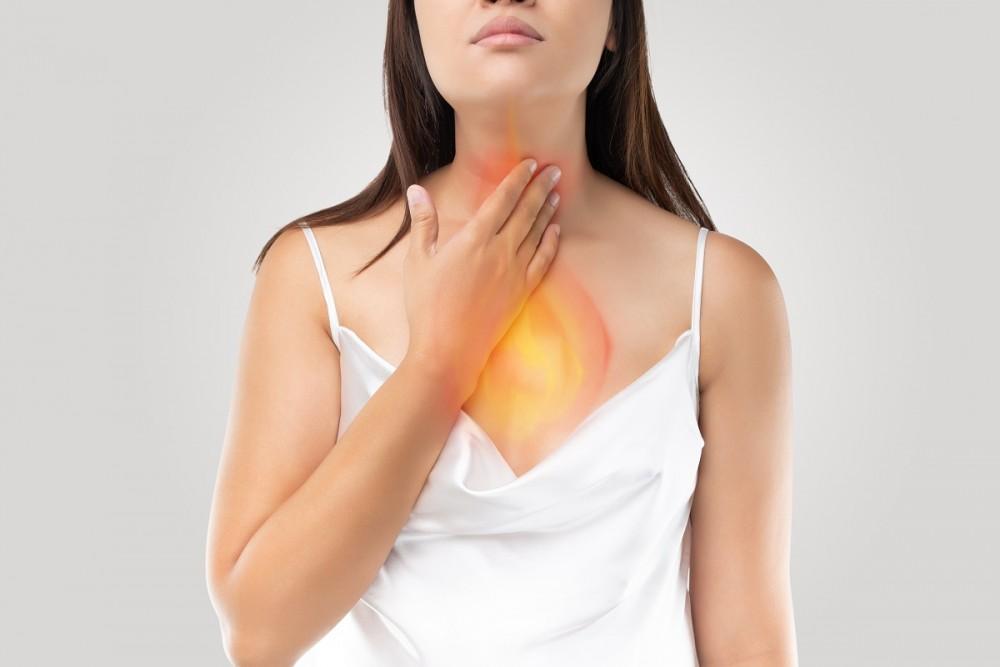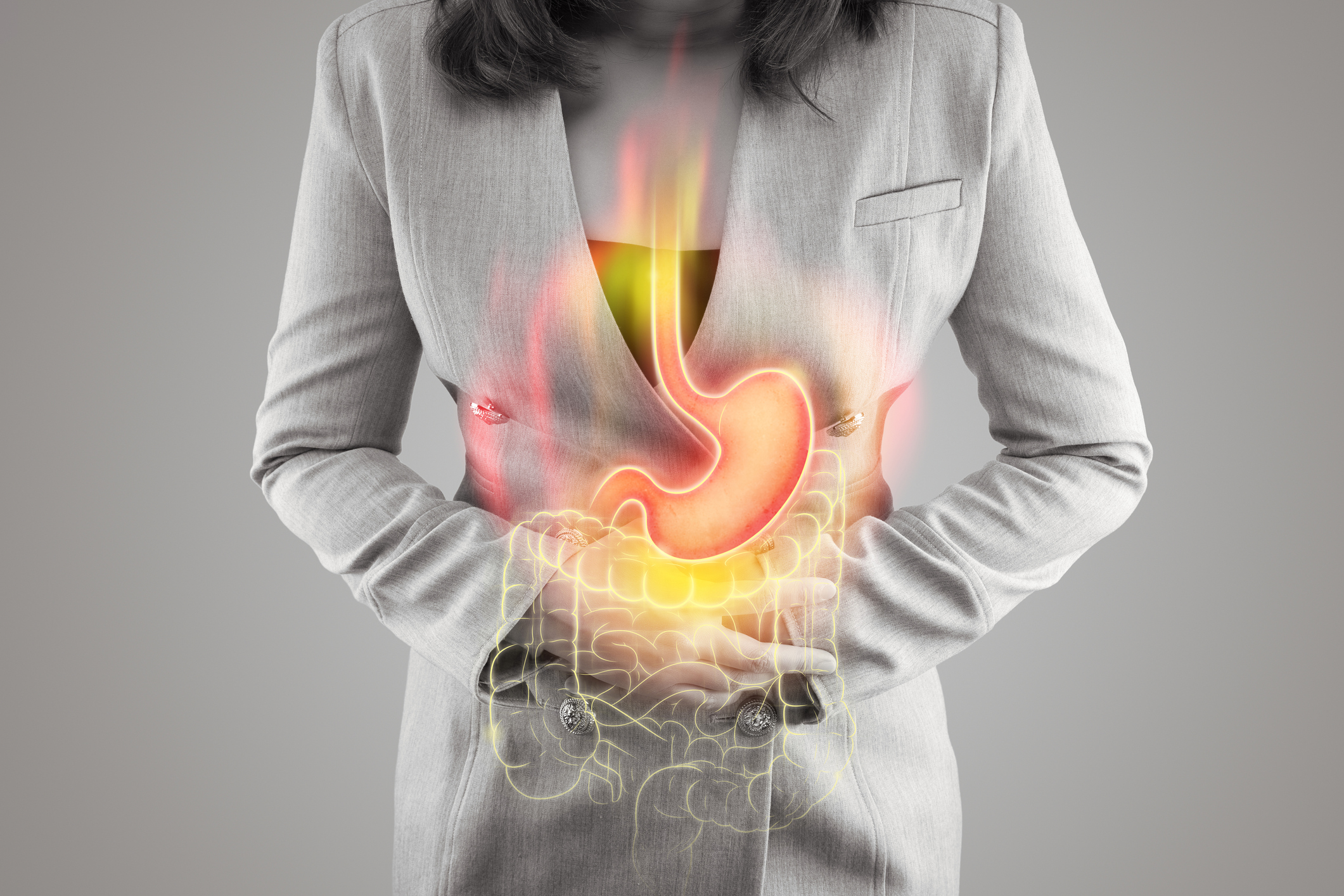Heartburn is one of the most common digestive complaints worldwide, often described as a burning sensation rising from the stomach into the chest.
According to the National Institute of Diabetes and Digestive and Kidney Diseases (NIDDK), heartburn occurs when stomach acid flows back into the esophagus, irritating its lining. Frequent heartburn can indicate gastroesophageal reflux disease (GERD), a chronic condition requiring medical care.
In this blog, you’ll explore the science of heartburn and gain a clearer view of why it happens and how to prevent long-term complications.
What Exactly Happens in Heartburn?
When you swallow food, it passes down the esophagus and into the stomach through a muscular valve called the lower esophageal sphincter (LES). Normally, this valve closes tightly after food enters the stomach.
However, in heartburn, the LES becomes weak or relaxes inappropriately, allowing acid to flow upward. This backwash irritates the sensitive lining of the esophagus, leading to discomfort.
The burning feeling is essentially chemical damage from stomach acid. Unlike the stomach, which has a strong protective lining, the esophagus lacks such defenses.
Repeated exposure to acid doesn’t just cause pain; it can also lead to inflammation, known as esophagitis. This makes understanding the science of heartburn vital for protecting long-term digestive health.
The Science of Heartburn and Digestive Triggers
Fatty foods, chocolate, coffee, and alcohol are known to relax the LES, increasing the chance of reflux. Spicy and acidic foods can further irritate the esophageal lining. This explains why many people notice a direct connection between their diet and flare-ups.
Lifestyle habits also matter. Eating large meals, lying down right after eating, or wearing tight clothing around the abdomen can all worsen reflux. By paying attention to personal triggers, individuals can reduce the likelihood of experiencing heartburn symptoms.
ALSO READ
How Long Does Heartburn Last? Understanding Duration & Relief
What Happens Inside Your Body During Heartburn
When you experience heartburn, the process begins with the stomach producing acid to break down food. Normally, a ring-shaped muscle called the lower esophageal sphincter (LES) acts like a valve, keeping stomach acid from rising upward into the esophagus.
If this muscle relaxes too often, weakens, or is placed under extra pressure due to overeating or tight clothing, acid can escape upward. Unlike the stomach lining, the esophagus doesn’t have strong protective barriers against acid, which is why even small amounts cause irritation and a burning sensation.
As acid comes into contact with the sensitive tissues of the esophagus, inflammation begins. This irritation triggers nerve endings, sending signals to the brain that are perceived as a sharp or burning pain in the chest, throat, or even the upper stomach area.
In many people, this pain feels worse when lying down or bending forward, because gravity makes it easier for acid to move upward. Along with burning, you might also notice a sour taste in the mouth or feel food regurgitating slightly, both of which are signs that digestive juices have entered the esophagus.
Over time, repeated exposure of the esophagus to stomach acid can lead to more than just temporary discomfort. The lining may become more sensitive, resulting in prolonged or more frequent heartburn episodes.
In chronic cases, persistent irritation can lead to inflammation, small erosions, or scarring of the esophagus, known as esophagitis. This is why occasional heartburn may be harmless in the science of heartburn.
But frequent or long-lasting episodes should not be ignored, as they signal that the natural balance inside your body is being disrupted and may require medical attention.
Complications of Untreated Heartburn

Occasional heartburn is common, but frequent or untreated reflux can lead to serious complications. One outcome is narrowing of the esophagus due to scar tissue formation, which makes swallowing difficult.
Chronic irritation can also result in Barrett’s esophagus, a condition where the lining changes and carries a higher risk of esophageal cancer.
These complications highlight why understanding the science of heartburn isn’t just about easing temporary discomfort. It’s about preventing long-term harm. People with frequent symptoms should seek medical evaluation to ensure effective management.
Managing and Preventing Heartburn
Treatment typically begins with lifestyle adjustments. Eating smaller meals, avoiding late-night snacks, and elevating the head while sleeping can reduce acid reflux episodes.
Quitting smoking and limiting alcohol intake are also highly beneficial. When lifestyle changes aren’t enough, medications such as antacids, H2 blockers, or proton pump inhibitors (PPIs) may be recommended.
These work by reducing stomach acid levels and minimizing irritation to the esophagus. In severe cases, surgical options are available to strengthen the LES and prevent reflux.
Key Takeaway
The science of heartburn reveals that it’s more than just occasional discomfort; it’s a complex interaction of weakened muscles, dietary triggers, and acid irritation. While occasional symptoms may not be harmful, frequent reflux needs attention to prevent complications.
With proper management, from lifestyle changes to medical treatments, most people can keep heartburn under control and protect their digestive health.
FAQs
What causes heartburn to happen in the first place?
Heartburn occurs when the lower esophageal sphincter doesn’t close properly, allowing stomach acid to backflow into the esophagus. This acid irritates the lining, creating a burning sensation after eating or lying down.
Can diet really affect the science of heartburn?
Yes, diet plays a major role. Foods like citrus, tomato-based dishes, fried meals, and caffeinated drinks can trigger reflux. Avoiding these, along with portion control, often reduces symptoms significantly.
Is heartburn the same as GERD?
No, but they are closely related. Heartburn is a symptom, while GERD is a chronic condition where reflux occurs frequently and may cause long-term damage. GERD requires medical diagnosis and management.
When should I see a doctor for heartburn?
If you experience heartburn more than twice a week, wake up at night with symptoms, or notice difficulty swallowing, consult a doctor. These may be signs of GERD or another underlying condition.



Join The Discussion